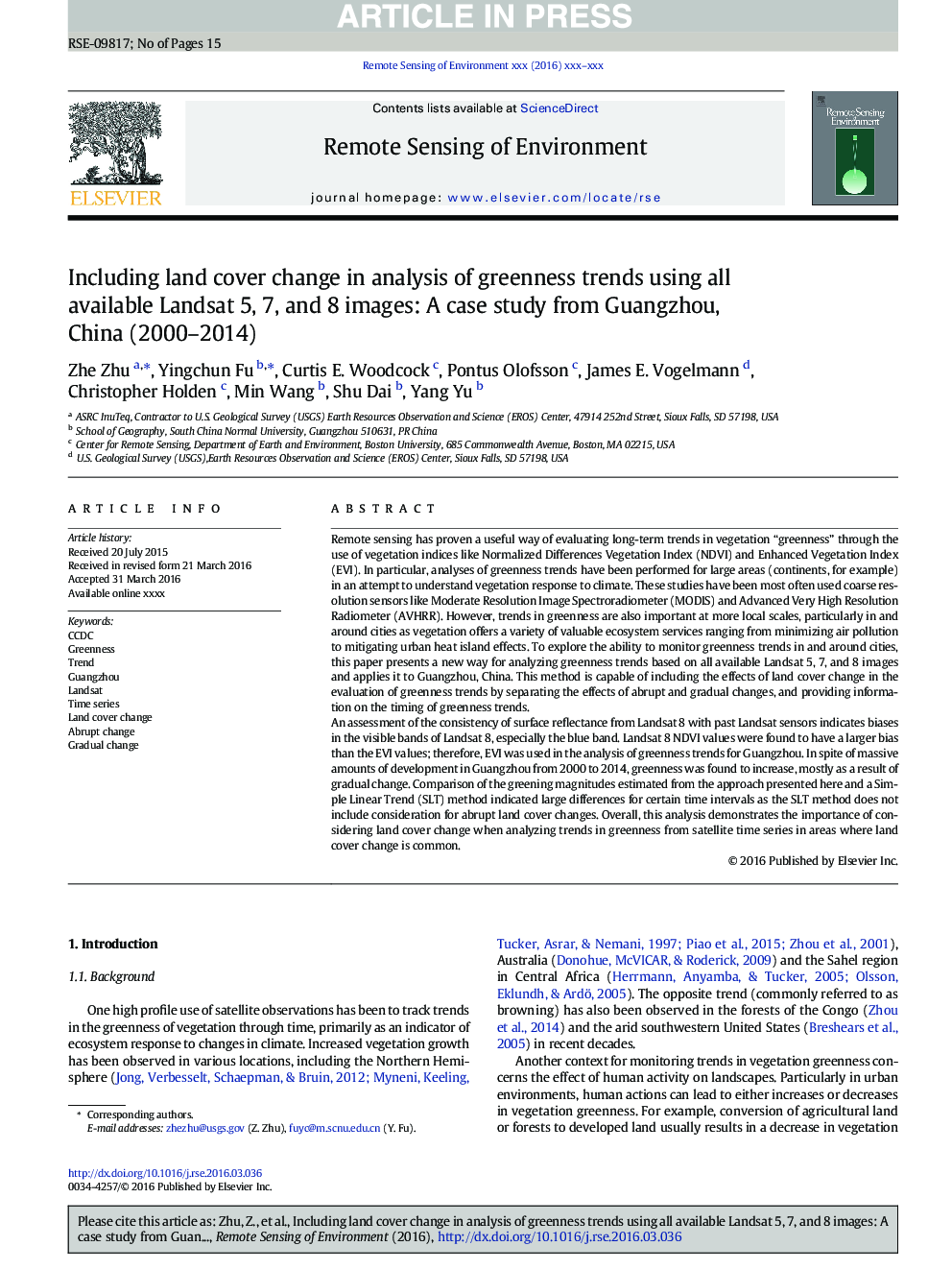| Article ID | Journal | Published Year | Pages | File Type |
|---|---|---|---|---|
| 6345018 | Remote Sensing of Environment | 2016 | 15 Pages |
Abstract
An assessment of the consistency of surface reflectance from Landsat 8 with past Landsat sensors indicates biases in the visible bands of Landsat 8, especially the blue band. Landsat 8 NDVI values were found to have a larger bias than the EVI values; therefore, EVI was used in the analysis of greenness trends for Guangzhou. In spite of massive amounts of development in Guangzhou from 2000 to 2014, greenness was found to increase, mostly as a result of gradual change. Comparison of the greening magnitudes estimated from the approach presented here and a Simple Linear Trend (SLT) method indicated large differences for certain time intervals as the SLT method does not include consideration for abrupt land cover changes. Overall, this analysis demonstrates the importance of considering land cover change when analyzing trends in greenness from satellite time series in areas where land cover change is common.
Related Topics
Physical Sciences and Engineering
Earth and Planetary Sciences
Computers in Earth Sciences
Authors
Zhe Zhu, Yingchun Fu, Curtis E. Woodcock, Pontus Olofsson, James E. Vogelmann, Christopher Holden, Min Wang, Shu Dai, Yang Yu,
